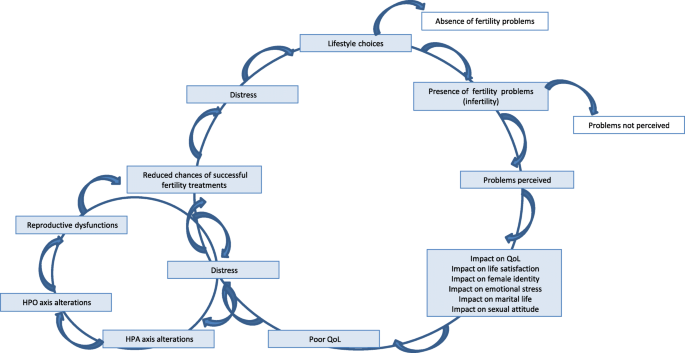Effects of Stress on Conception In Marriage.
Introduction to Stress and Infertility
The relationship between stress and infertility is a complex and multifaceted issue that has garnered significant attention in both medical and psychological research. Infertility can be a profoundly distressing experience for couples, often leading to heightened levels of anxiety, depression, and emotional turmoil.
This emotional distress can create a feedback loop where the stress of infertility exacerbates the challenges of conception, making it crucial to understand how stress impacts fertility.
Understanding the Psychological Impact of Infertility
Infertility affects approximately 12% of married women, leading to feelings of isolation, shame, and loss of control. The psychological burden associated with infertility can lead to increased anxiety and depression levels comparable to those experienced by cancer patients. These emotional states not only affect the quality of life but may also influence physiological processes related to conception.
The Biological Mechanisms Linking Stress and Fertility
Research indicates that chronic stress can disrupt hormonal balance in the body. Stress hormones such as cortisol can interfere with the signaling pathways between the brain and reproductive organs, potentially disrupting ovulation. For instance, studies have shown that women with elevated levels of alpha-amylase—a biomarker for stress—may take significantly longer to conceive compared to those with lower levels. This suggests that the body may instinctively inhibit reproductive functions during periods of high stress.
Behavioral Factors Influenced by Stress
Stress can also lead to behavioral changes that negatively impact fertility. Stressed individuals may engage in unhealthy coping mechanisms such as smoking, excessive alcohol consumption, or poor dietary choices—all factors known to adversely affect reproductive health. Additionally, high stress levels can reduce sexual frequency or desire, further complicating efforts to conceive.
Psychological Interventions and Their Efficacy
Recent studies have highlighted the effectiveness of psychological interventions in reducing stress among infertile couples. Cognitive-behavioral therapy (CBT), mindfulness practices, and group therapy have been shown to lower psychological distress significantly while simultaneously increasing pregnancy rates among participants. For example, women who participated in CBT were found to be nearly twice as likely to conceive compared to those who did not receive such interventions.
Conclusion: The Importance of Addressing Stress in Fertility Treatments
Given the substantial evidence linking stress with fertility challenges, it is essential for healthcare providers to incorporate psychosocial support into infertility treatment plans. Programs aimed at reducing psychological distress should be made widely available as they not only improve mental health outcomes but also enhance the likelihood of conception.
In summary, stress has a significant negative impact on conception within marriage, affecting both physiological processes related to reproduction and behavioral patterns that facilitate or hinder attempts at conception.





















0 Comments